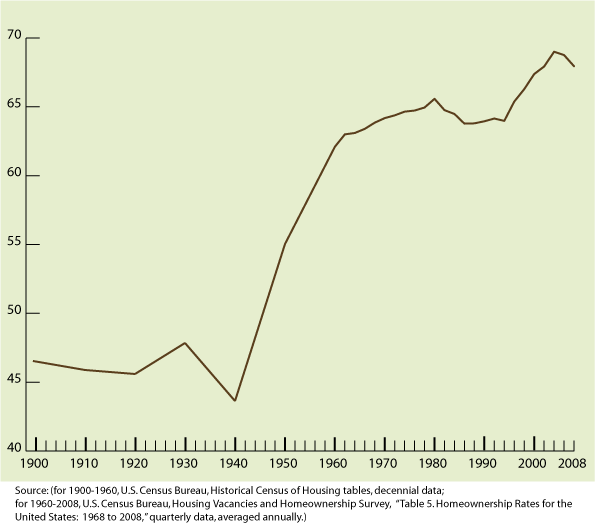America the Immobile
Why won't we move to find work anymore?
-
Tools:
The history of America is the story of people on the move from the very beginning: the Pilgrim Fathers and the settlers at Jamestown crossed the wide Atlantic to find freedom in a new land. It wasn't long before residents of both those places wanted to go somewhere else; Roger Williams left Puritan persecution in Massachusetts to found Rhode Island, and any number of frontiersmen worked their way westward out of Virginia.
From Daniel Boone, who would move further west seeking "elbow room" whenever more settlers came close enough to see their chimney smoke, to Horace Greeley's editorial advice of "Go West, young man!", Americans have developed the habit of moving house in search of better opportunity over the horizon. The Joads of "The Grapes of Wrath" didn't find paradise in California, but at least they found food, which was more than could be said of Oklahoma.
Even non-Americans in America, like today's illegal immigrants, made a major move to better themselves. For as long as there have been records, Americans have been far more willing to up stakes and move out-of-state than, say, Europeans.
All of a sudden, not anymore. The New York Times reports:
The [Census] Bureau found that the number of people who changed residences declined to 35.2 million from March 2007 to March 2008, the lowest number since 1962, when the nation had 120 million fewer people.
Experts said the lack of mobility was of concern on two fronts. It suggests that Americans were unable or unwilling to follow any job opportunities that may have existed around the country, as they have in the past. And the lack of movement itself, they said, could have an impact on the economy, reducing the economic activity generated by moves.
Is this a sudden and profound change in the mindset of Americans? It's possible that people would rather stay unemployed at home in Mom's basement than move across the country to find a paying job. Do Americans all of a sudden, like so many retiring Democratic politicians this year, want to "spend more time with family"?
There is another explanation. For many decades, it has been the policy of the United States government to encourage home ownership. Surprisingly, for once the government seems to have actually accomplished is goal, as witness this graph:

From less than half of Americans owning the place they live, we've almost reached two thirds. Success!
Or is it?
Unintended Consequences
There's no doubt that widespread homeownership can lead to societal stability. Most people have an aversion to torching their own home whereas they've been known to be willing to destroy a place they're just renting during a protest. In South Central L.A. during the Rodney King riots, mostly the rioters were destroying property that was not theirs, whereas the Korean shopkeepers in particular defended their stores with firearms. Especially after the inner-city race riots of the 1960s, it made perfect sense for a government seeking social stability to help everyone get a stake in their community.
But you can have too much of a good thing. It's a whole lot easier to move out of a house you've been renting than one you own. The U.S. Census Bureau reports that renters move four times as often as homeowners - which, when you consider the transaction costs of buying and selling a home (lavish commissions for realtors, real estate transfer taxes, myriad bank fees and charges) can reach 10% of its value, starts to tip the scale the other way.
We seem to find a lot of Americans way too attached to the houses they "own" even if, in reality, they owe so much on their mortgage that they don't own anything at all. For decades, Michigan was the archetype of stable middle-class homeowning America; now, thanks to the collapse of Detroit auto manufacturing, houses there can be had for a song. Yet there is 50% unemployment in Detroit, and levels not much lower in the surrounding area.
How is this even possible? Surely at least some of those people have enough residual ambition to up-stakes for elsewhere, considering that anywhere else has more jobs than Michigan? Nope: many Michiganders can't bear to abandon the home they paid so much for, even though it's now worthless. Michigan is hardly unique: according to the Wall Street Journal, one in four American mortgage-holders owe more then they could sell their house for.
Greener Grass and Warmer Climes
Even during the boom times, people complained that businesses were moving jobs away from their traditional locations. Car plants in the Midwest closed as new ones opened in the South and Mexico. Furniture plants in the Southeast closed, and were replaced by new ones in China. Boeing moved its headquarters from Seattle to Chicago, and announced that its new assembly line will be in weak-unioned South Carolina.
This wouldn't be nearly the problem that it is if Americans were willing to follow the jobs as their ancestors were. Your grandfather crossed an ocean to find work, yet you won't drive a few states over?
We talk about the Euro-sclerosis of old Europe's heavily regulated economies where entrepreneurship is crushed by red tape, but sclerosis and immobility can arise in the head or heart too when people become unwilling to move. Perhaps a silver lining of our Great Recession that won't end will be in returning Americans to their nomadic roots, searching for a better life over the horizon.
-
Tools:
What does Chinese history have to teach America that Joe Biden doesn't know?

